Oliver Kutz
Know your exceptions: Towards an Ontology of Exceptions in Knowledge Representation
Mar 05, 2024
Abstract:Defeasible reasoning is a kind of reasoning where some generalisations may not be valid in all circumstances, that is general conclusions may fail in some cases. Various formalisms have been developed to model this kind of reasoning, which is characteristic of common-sense contexts. However, it is not easy for a modeller to choose among these systems the one that better fits its domain from an ontological point of view. In this paper we first propose a framework based on the notions of exceptionality and defeasibility in order to be able to compare formalisms and reveal their ontological commitments. Then, we apply this framework to compare four systems, showing the differences that may occur from an ontological perspective.
Repairing Ontologies via Axiom Weakening
Nov 09, 2017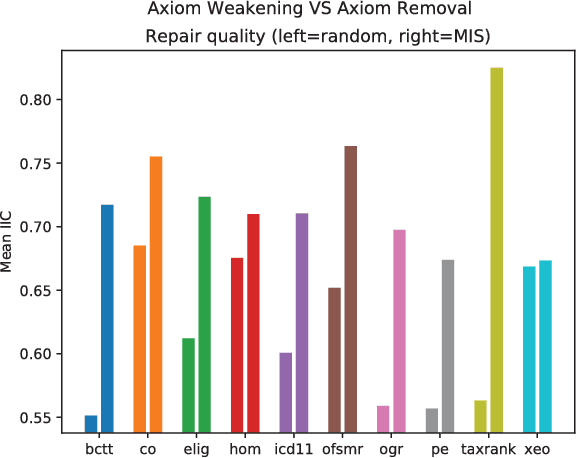
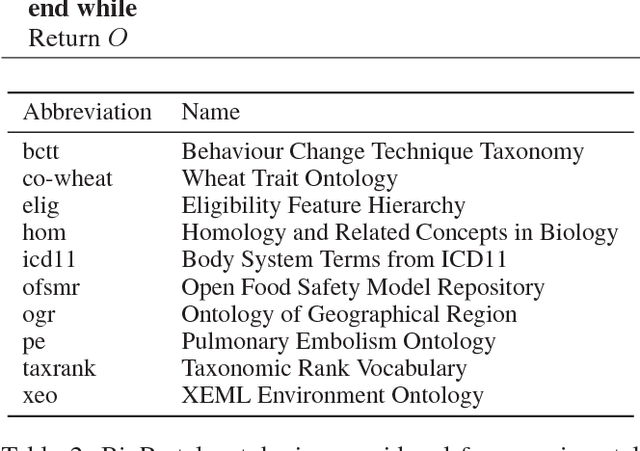
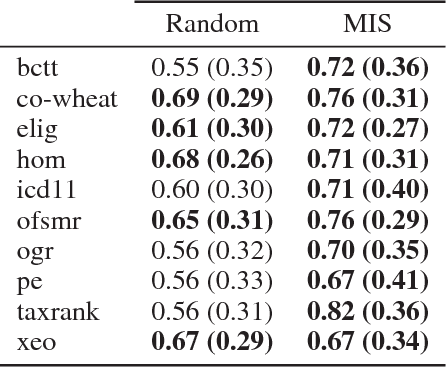
Abstract:Ontology engineering is a hard and error-prone task, in which small changes may lead to errors, or even produce an inconsistent ontology. As ontologies grow in size, the need for automated methods for repairing inconsistencies while preserving as much of the original knowledge as possible increases. Most previous approaches to this task are based on removing a few axioms from the ontology to regain consistency. We propose a new method based on weakening these axioms to make them less restrictive, employing the use of refinement operators. We introduce the theoretical framework for weakening DL ontologies, propose algorithms to repair ontologies based on the framework, and provide an analysis of the computational complexity. Through an empirical analysis made over real-life ontologies, we show that our approach preserves significantly more of the original knowledge of the ontology than removing axioms.
Ontohub: A semantic repository for heterogeneous ontologies
Dec 15, 2016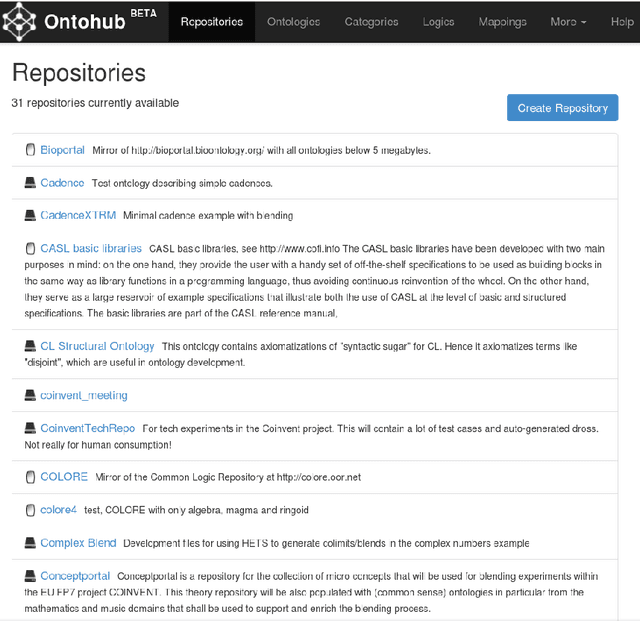


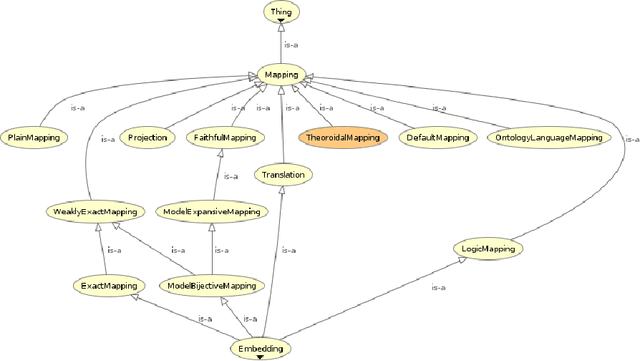
Abstract:Ontohub is a repository engine for managing distributed heterogeneous ontologies. The distributed nature enables communities to share and exchange their contributions easily. The heterogeneous nature makes it possible to integrate ontologies written in various ontology languages. Ontohub supports a wide range of formal logical and ontology languages, as well as various structuring and modularity constructs and inter-theory (concept) mappings, building on the OMG-standardized DOL language. Ontohub repositories are organised as Git repositories, thus inheriting all features of this popular version control system. Moreover, Ontohub is the first repository engine meeting a substantial amount of the requirements formulated in the context of the Open Ontology Repository (OOR) initiative, including an API for federation as well as support for logical inference and axiom selection.
The Distributed Ontology Language (DOL): Use Cases, Syntax, and Extensibility
Aug 01, 2012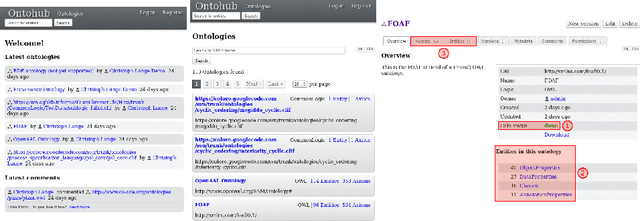
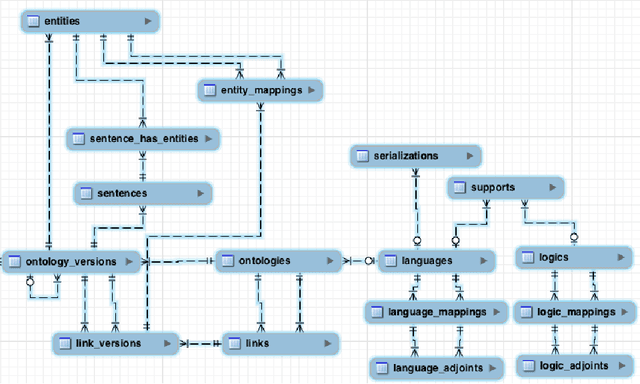
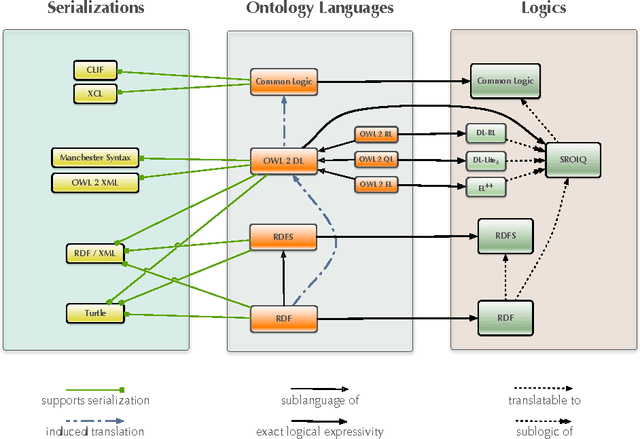
Abstract:The Distributed Ontology Language (DOL) is currently being standardized within the OntoIOp (Ontology Integration and Interoperability) activity of ISO/TC 37/SC 3. It aims at providing a unified framework for (1) ontologies formalized in heterogeneous logics, (2) modular ontologies, (3) links between ontologies, and (4) annotation of ontologies. This paper presents the current state of DOL's standardization. It focuses on use cases where distributed ontologies enable interoperability and reusability. We demonstrate relevant features of the DOL syntax and semantics and explain how these integrate into existing knowledge engineering environments.
 Add to Chrome
Add to Chrome Add to Firefox
Add to Firefox Add to Edge
Add to Edge